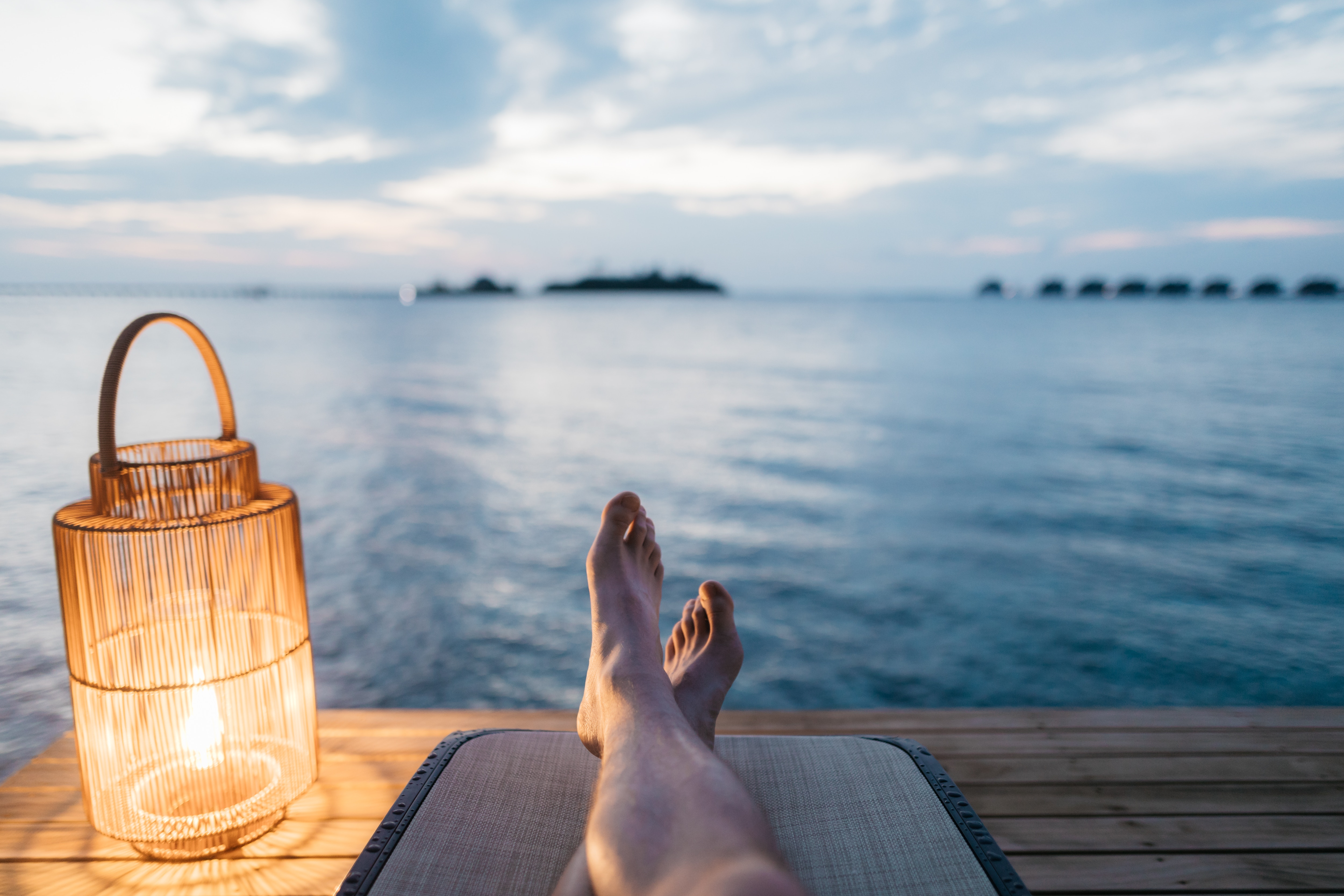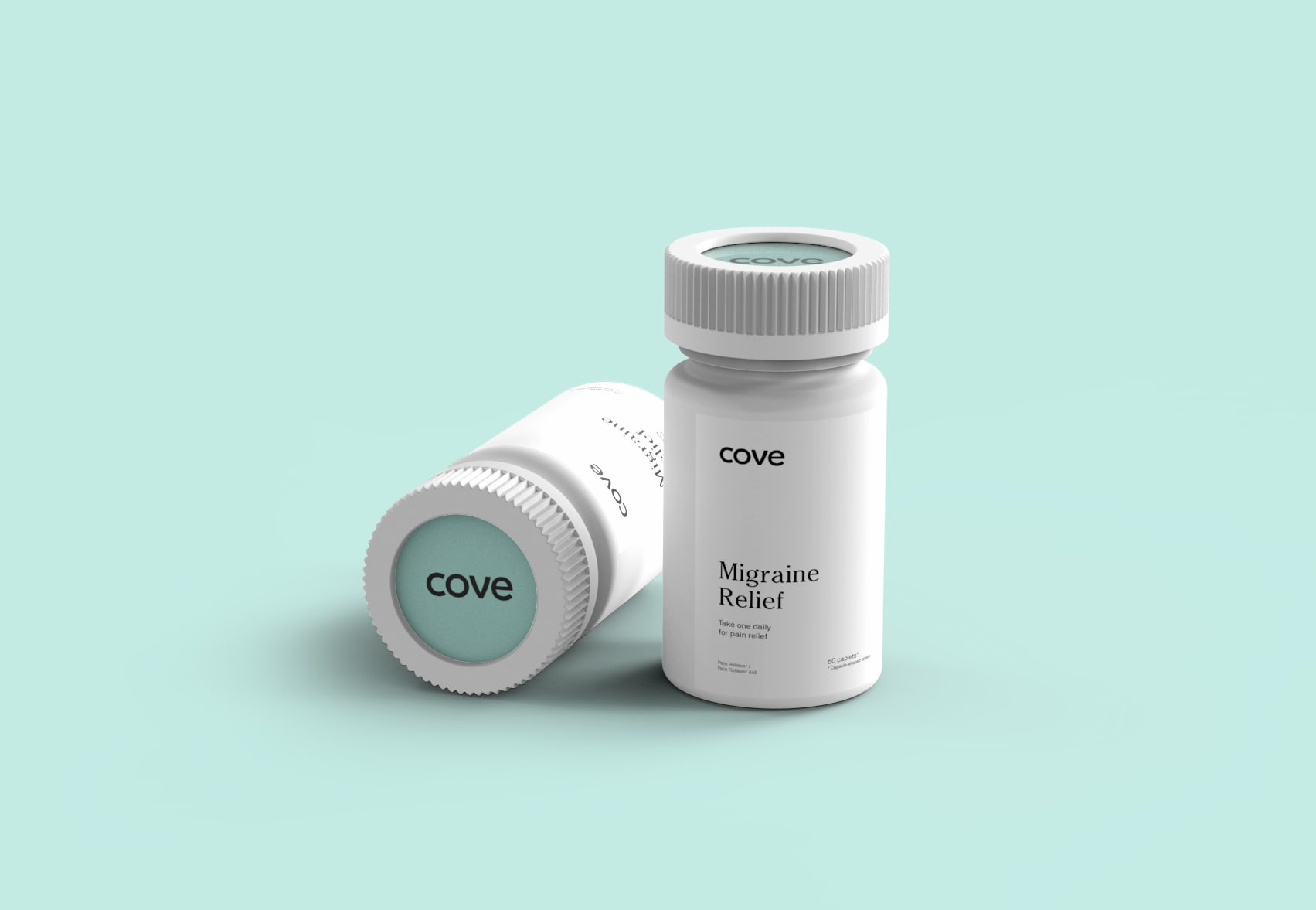Worried migraine will ruin your vacation? You’re not alone.
If you suffer from migraine, sometimes things that are supposed to be fun—like birthday parties, holidays, concerts, or vacations—can be stressful.
For one thing, loud noises, bright lights, and other things that come along with the festivities can trigger migraine attacks. And you can’t put your headache on hold until your friend’s wedding or your family trip is over.
It’s ironic, because the thing you probably want more than anything is a break from your migraine.
The good news? You don’t have to let your attacks keep you from enjoying your much-deserved vacation.
We talked to our medical advisors here at Cove to help you avoid attacks as much as possible (and treat them if they do strike). In the same way that tracking your headaches, knowing your triggers, and using your treatment plan can help you at home, planning ahead can help you enjoy your vacation. Let’s take a look.
Why do I get migraine attacks on vacation?
Since stress is a common migraine trigger, you might think you’d be least likely to feel one coming on during a vacation, when you’re likely more relaxed than usual.
That could be the case, but migraine expert and Cove medical advisor Dr. Philip Bain points out that attacks on the first day or two of vacation are not unusual for migraine sufferers. Sometimes they occur as “let-down” headaches, when your body finally relaxes and endures an attack it had been pushing off to get through pressing things in your daily life.
“It probably goes back to the days of cavemen when it would be disadvantageous to have a migraine attack as you are running away from a tiger,” Dr. Bain says. “Once you are safely inside your cave, your body relaxes and then the attack that you were about to have previously can occur.”
Even if you’re not stressed, you might get a headache on vacation if you encounter your triggers or go through a sudden change in lifestyle. Dr. Bain notes that all of these common vacation occurrences could be an issue for you if you have migraine:
- changes in routine
- time zone changes
- eating different food or at different times
- different fragrances and smells in airports and on planes
- changes in altitude
- different beds with different pillows
- long periods of sun exposure
Air travel in itself can be a migraine trigger for some, as well. Fortunately, over-the-counter naproxen could help, if you know to plan ahead. Migraine expert and Cove Medical Director Dr. Sara Crystal recommends “patients take a long-acting anti-inflammatory prior to the flight.”
Are certain locations more likely to trigger a migraine attack?
Potentially. So, you may want to opt for more “migraine-friendly” locales.
For example, certain factors can make your attacks more likely, including:
- high altitude
- extreme climates
- long flights
- substantial time changes
- very different food items
Dr. Bain notes that “the migraine brain prefers stability and lack of change,” so visiting a place that isn’t drastically different than your normal environment can help reduce the risk of an attack. He adds, “Places like Honolulu and San Diego, where the temperature is pretty stable all year long, are best.”
You can check out other good cities for migraine sufferers to visit on Migraine Again.
But, since you may not be able to choose your destination—and since you might want to visit faraway places or locales with extreme conditions—what can you do to prepare for and prevent headaches?
How can I avoid having a migraine attack on vacation?
Dr. Bain recommends sticking to your routine as much as possible.
He urges patients to:
- get plenty of sleep, and stick to your sleep schedule as much as you can
- eat regular meals (and don’t skip meals!)
- practice moderation with alcohol and avoid overindulging
- stay hydrated (Dr. Bain cautions, “Don’t get dehydrated, even a little bit!”)
- take your preventive medications consistently, if they’re part of your treatment plan
- when ordering at restaurants, be diligent about checking for food triggers
- bring sunglasses if you’re visiting a bright location
- don’t stay out in the sun too long
It’s important to keep taking your prescribed preventive medications, but you may also want to check with your doctor about adding anything else to your regimen that could help you prevent migraine attacks. For example, Dr. Crystal sometimes prescribes diuretics for patients visiting a high-altitude destination. “It’s not fully understood,” she said, “but diuretics may help by improving oxygenation.”
It’s also a good idea to take it easy the first few days of your vacation so your body can adjust to the changes in your environment. “If you are traveling to an area of higher altitude” in particular, Dr. Bain suggests, “take a day or two to get used to the altitude and don’t plan anything too strenuous for the first two days.”
In fact, planning out the whole vacation could be a good tactic for you, if getting organized in advance reduces stress. If a looser itinerary makes you more comfortable, try not to book out your days with ambitious plans.
On top of that, Dr. Bain encourages patients to keep any travel companions informed. “Remind them that you have to be flexible,” he says. “If you have a headache, you may have to stay back at the hotel.”
Be sure to set expectations around your pace, since you may need to “acclimatize” to your destination, he says. You can also fill them in on how important it is that you stay on schedule with meals, take breaks from sun exposure, get plenty of rest, and take it easy with alcohol consumption.
What if I get a migraine headache anyway?
Unfortunately, there’s always a possibility you’ll experience an attack. To make sure you’re ready if one does strike, here’s how to prepare.
First, bring your preventive and acute medications, plus any supplements or additional treatments that have been successful for you at home (such as eye masks or essential oil rollers). Be sure to bring your medication in your carry-on, in case checked luggage is lost or delayed, Dr. Bain cautions. (It’s also smart to bring along proof of your prescription, in case you have any trouble at security.)
In the moment, Dr. Bain advises patients to practice your normal migraine treatment plan. “Get to a dark, quiet room and get an ice pack,” for example, “and take your medication, especially the nausea meds if you suffer from that.”
The prospect of having a migraine attack on vacation feels unfair, but with the proper preparation, you can enjoy migraine-free vacations, or treat them quickly without ruining a trip. The most important thing to remember? You need a solid migraine treatment plan to fall back on while traveling.
Need help getting a diagnosis or treatment? Here at Cove, we believe that everyone has a right to quality migraine treatment—and that includes medication and support. Our Cove doctors have been trained to use research-backed, expert-developed diagnostic tools and frameworks to help you make a plan for treatment. And they do this all online, meaning you can start the consultation process today. Click here to learn more.
The information provided in this article is not a substitute for professional medical advice, diagnosis, or treatment. You should not rely upon the content provided in this article for specific medical advice. If you have any questions or concerns, please talk to your doctor.
Photo by Simon Migaj on Unsplash


